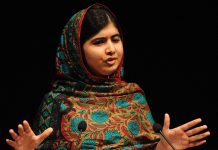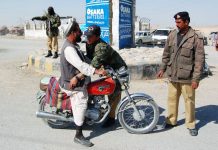KABUL (Pajhwok): A new study shows more than 100 cases of violence against female journalists have been registered and that their weak presence is affecting the quality of media work.
The contents of the study were discussed at a gathering titled “Women journalists as preservers of justice and equality” in Kabul.
The study focusing on 150 journalists and 15 officials of media outlets in Kabul and Balkh provinces says underrepresentation of women journalists had a negative impact on the contents, quality and effectiveness of media activities.
Social and Cultural Organization (SCO) head Masouma Mohammadi said advocating improved lives for journalists had been one of their main activities.
About the study, she said, it was aimed at evaluating the situation of female journalists and resolving their problems. She said one of the major problems female journalists faced was the high level of violence against them.
The level of violence against female journalists was higher in Kabul than Balkh province and common people and security officials were to blame for this, she added.
After common people in Mazar-i-Sharif, it were families inflicting more violence on women journalists, she said.
Based on SCO’s figures, since the beginning of the year, more than 105 cases of violence against female journalists have been registered in Kabul and Balkh provinces.
The cases include verbal abuse, threats, physical violence, sexual harassment and beatings.
Of the incidents, 41 cases occurred outside the field, as many in the field and 17 cases at workplaces.
The study finds that gender discrimination still exists against female journalists and 19.5 percent of them work without salaries or for only 3,000 afghanis per month.
Mujibullah Khelwatgar, NAI executive director, said the study should be expanded so that better results and findings could be obtained.
The research, he added, should also be focused on areas where the conflict was ongoing and where more conservative traditions prevailed.




